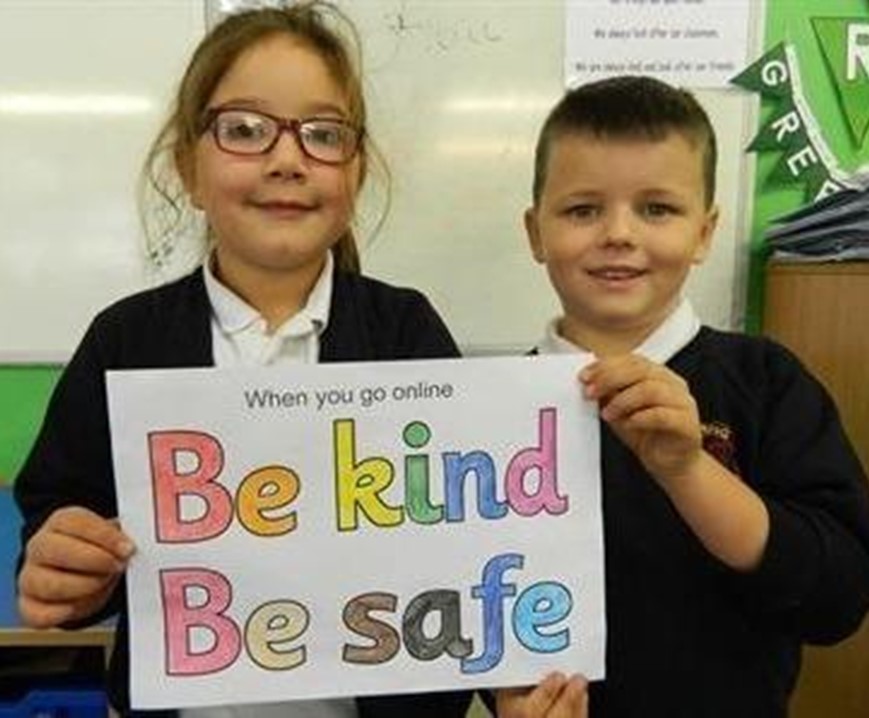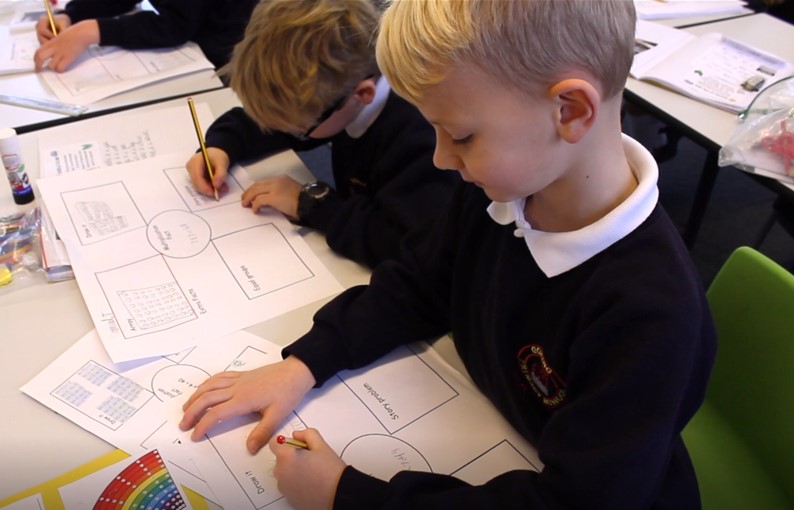Technology plays a vital role in the lives of young people. Smartphones, tablets, laptops and games consoles provide unlimited access to the internet. Social media, chat rooms and video-sharing sites expose our children to a world of communication. Technology provides children will huge opportunities – but it also comes with risks. At Goring Primary School, the safe and responsible use of technology is at the centre of our computing teaching.
Our maxim is Be kind and Be safe

Our Children
We support our children online using Our Internet Safety Code:
- Online friendships should be an extension of your offline friendships. Save your important conversations, like resolving conflicts, for face-to-face meetings.
- Be respectful of other people’s opinions and their privacy; be courteous to others.
- Be aware of your digital footprint; be careful where you go and what you see.
- Think before you post. Remember that when you respond to something someone’s said, there’s a person at the other end who has feelings, just like you do.
- Know who you’re dealing with. Never arrange to meet someone you only know online.
- Protect your identity. Never give out your personal details such as name, address, phone number, birthday, school.
- It’s not always real life – images of other people’s (carefully chosen) perfect lives can leave you feeling low, but they don’t tell the whole story, so try not to compare yourself.
- Keep a healthy balance. Spending time online is fun but remember there are many other creative, social and physical activities that are equally fun.
 Our Parents
Our Parents
At school we take the children’s online safety very seriously. Although many children are very knowledgeable where technology is concerned, they still need support, information and guidance with their online activities. To help support parents in this, here is a list of things you can do to help keep your child safe while they are online:
- Spend time online with your child; ask them to tell you about the sites they like to visit and what they enjoy doing online.
- Set reasonable time and usage limits.
- Discuss the dangers of going online with your child.
- Try and keep them out of online chat rooms, and reinforce the golden rule: never talk to strangers and never ever meet up with strangers.
- Never let your child upload or download photos without your permission.
- Check with your Internet Service Provider for any parental controls, blocking and filtering tools they may offer.
- Place computers in a common area of the house.
- Be a good role model.
There is a lot of useful information online regarding your child’s online safety. A few of the main links include:
The Department for Education provides advice to parents on cyberbullying, and you can access its online parents' support website, Parent Info, here.
It is important to remember that the recommended minimum age to have an account on most social media, such as Instagram, Facebook, Youtube and Snapchat, is 13 years old. For WhatsApp, it is now 16 years old.
Finally, if you are worried about online abuse or the way someone has been communicating online, you can report it on the Child Exploitation and Online Protection (CEOP) website at CEOP REPORT. The CEOP is a law enforcement agency set up to investigate cyber crime.

